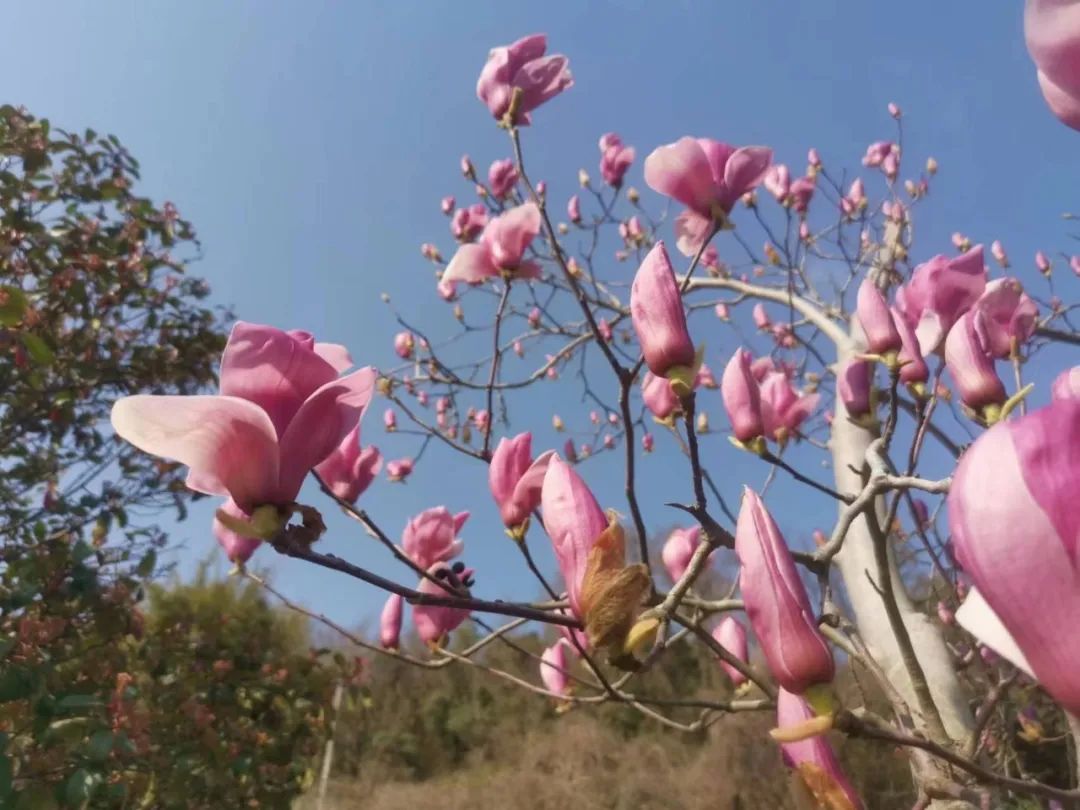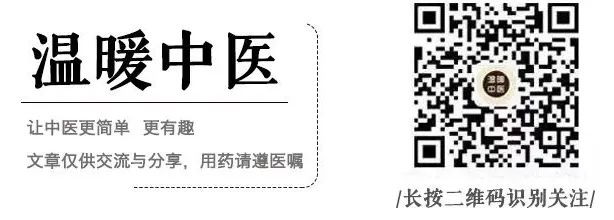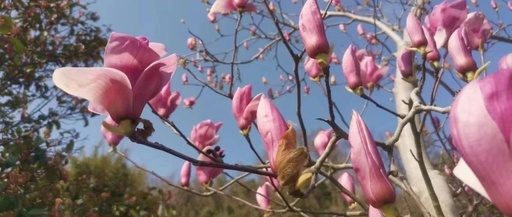
Click the blue text above to follow us

Written by: Warm TCM
In life, having great aspirations leads to great achievements.
■
This traditional Chinese medicine formula can tonify Qi and nourish Yin, similar to the concept of Sheng Mai Yin (生脉饮), but while Sheng Mai Yin focuses on nourishing the heart, this formula emphasizes nourishing the liver and kidneys.
The name of this formula is Ren Shen Gu Ben Wan (人参固本丸) – Ginseng Vitality Pill.
Ren Shen Gu Ben Wan: Ren Shen (人参 – Ginseng), Di Huang (地黄 – Rehmannia), Shu Di Huang (熟地黄 – Prepared Rehmannia), Shan Zhu Yu (山茱萸 – Cornus), Shan Yao (山药 – Chinese Yam), Ze Xie (泽泻 – Alisma), Mu Dan Pi (牡丹皮 – Peony Root), Fu Ling (茯苓 – Poria), Mai Dong (麦冬 – Ophiopogon), Tian Dong (天冬 – Asparagus).
The primary ingredient for tonifying Qi is Ren Shen. With sufficient Ren Shen, one can achieve the desired effect. This plant, if not harvested, can continue to grow indefinitely; unlike ordinary herbs that are annual, it is a perennial.
Year after year of growth allows it to accumulate a significant amount of essence, which it concentrates in its roots. Using the roots for medicinal purposes can restore vital energy, replenishing the root of life. Among all Qi tonics, only Ren Shen possesses this unique power.
Due to its potency, it is sometimes necessary to use some Yin-nourishing herbs to temper its warming and drying properties, commonly using Mai Dong.
Tian Dong and Mai Dong are often confused, leading people to mistakenly believe they are the same herb; however, they are not. They share similar effects, both excelling at nourishing Yin.
Next is Di Huang, which here typically refers to Sheng Di Huang (生地黄 – Raw Rehmannia), to distinguish it from Shu Di Huang (熟地黄 – Prepared Rehmannia). Although both are from the same plant and part, they differ in form and medicinal properties. Sheng Di is yellow, while Shu Di is black; Sheng Di is cold in nature, while Shu Di is warm.
Sheng Di clears heat and cools the blood. We know that Yin deficiency can lead to internal heat, which is essentially the result of Yin not restraining Yang. Sheng Di can clear heat from the blood and also has the effect of nourishing Yin. Before Shu Di was introduced, Sheng Di was relied upon heavily in ancient formulas that mentioned Di Huang.
Later, ancient practitioners began to use the method of nine steams and nine sun-dryings to process Di Huang. Sheng Di is mixed with yellow wine and repeatedly steamed and dried, utilizing the power of fire and the sun. Through this process, the two forces are solidified, and some new changes occur. First, the color turns black, and second, the medicinal properties become warm, transforming Sheng Di into Shu Di.
Shu Di has a better effect on nourishing Yin and replenishing blood. As the saying goes, “To gain something, one must lose something.” By removing the cold nature, Shu Di loses its ability to clear heat and cool the blood. If a formula contains both Sheng Di and Shu Di, it combines the effects of both, making the entire formula richer and more comprehensive.
This concludes the introduction to Di Huang.
Next, let’s look at Shan Yao, which nourishes kidney Yin, but its effects extend beyond that. Zhang Xi Chun once said: “Only Shan Yao can nourish the Yin of the five organs and six bowels.”
Shan Zhu Yu nourishes the liver and kidneys, as the liver and kidneys share a common source. Many Chinese herbs belong to both the liver and kidney meridians, allowing them to support both organs simultaneously, although there may be a focus during the process. Shan Zhu Yu emphasizes nourishing the liver, promoting liver blood to transform into kidney essence.
Fu Ling and Ze Xie are commonly used dampness-eliminating herbs. The kidneys govern water and regulate fluid metabolism. Poor metabolism can lead to dampness, which obstructs the path of tonifying herbs. Fu Ling and Ze Xie effectively exert their diuretic and damp-resolving effects, akin to sending a small reconnaissance team to clear potential enemies before the main force advances.
Mu Dan Pi is the dried root bark of the peony plant. The peony flower is elegant, and Mu Dan Pi is subtly influenced by this, thus it is cold in nature and has the effect of clearing heat and cooling the blood. We can consider it a reserve force. As mentioned earlier, Yin deficiency can lead to internal heat; if the heat is too intense, relying solely on Sheng Di is insufficient, and Mu Dan Pi is needed.
If we exclude Ren Shen, Mai Dong, and Tian Dong, this combination is quite familiar, like encountering an old friend in a vast crowd. This old friend has weathered a hundred years of storms and is now silver-haired and frail, yet it is so famous that we can recognize it at a glance: it is Liu Wei Di Huang Wan (六味地黄丸 – Six-Ingredient Rehmannia Pill). If we were to conduct a survey on traditional Chinese medicine formulas, Liu Wei Di Huang Wan would undoubtedly rank among the most well-known.
However, despite its high recognition, many people’s understanding of it remains superficial; they may have heard of it and know it is for kidney tonification, but few can articulate its specific uses. The effects of Liu Wei Di Huang Wan can be summarized in four words: nourish Yin and tonify the kidneys. Without Ren Shen, it lacks the Qi tonifying effect, which distinguishes it from Ren Shen Gu Ben Wan.
People with Qi deficiency often feel fatigued, while those with Yin deficiency frequently exhibit signs of internal heat, such as heat in the palms and soles, night sweats, and tidal fever.
Ren Shen Gu Ben Wan can regulate Yin deficiency and Qi weakness caused by liver and kidney insufficiency, addressing issues such as fatigue, weakness in the lower back and knees, dizziness, tinnitus, insomnia, night sweats, and dry stools.
Copyright Notice
This article was first published on the WeChat public account Warm TCM. All rights reserved. Any infringement will be pursued!


